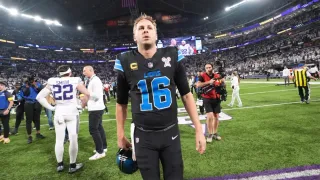December 7, 2020
Two LA Drive-Ins Pop Up Just in Time for the Holidays
Kevin Taft READ TIME: 5 MIN.
Whelp! Sadly, the Pandemic is in full swing here in LA County and has caused a lot of in and outdoor festivities to be cancelled and postponed. But luckily, the nostalgia of the drive-In movies continues to reign supreme as one of the safest and most reliable forms of entertainment this holiday season.
While regular drive-ins are still open – sprinkled around the outskirts of the city – a variety of pop-up theaters have made their presence known around the city of Los Angeles.
Two of the best are new venues ready to give holiday revelers a place to congregate in the comfort and safety of their own cars, while still taking in the magic of the movies - not to mention the joy of holiday classics.
Rooftop Cinema Club's Drive-In Experience
Rooftop Cinema Club has adorned two of LA counties most spacious rooftops for the past few years. But with the advent of COVID-19, being shoulder to shoulder with other movie-goers wasn't the wisest, so one of the staples of LA's summer never re-opened. But now, they are back! This time with a pop-up Drive-in at the Santa Monica Airport Hangar.
Gerry Cottle Jr., the founder of Rooftop Cinema (which originally began in London) wanted to find a way to still offer their community-style screenings amidst a global health crisis.
"With the widespread closure of cinemas, including ours, drive-in movie theaters around the world have been enjoying newfound fame and popularity where social distancing is a must. I jumped at the opportunity to save the business and put our staff back to work with safety at the forefront of the experience."
But the Rooftop Cinema isn't simply offering movies to the community, they are giving back as well.
"In addition to providing jobs onsite and raising funds for the Los Angeles Regional Food Bank with our Community Screenings every Wednesday," explained Cottle, "we've realized how valuable The Drive-In is in supporting local businesses. Through our partnership with The Cloverfield we're not only offering guests a unique dining option, but we're supporting a local business during a difficult time. It's all about recovery and community.
And the Drive-In experience seems to be here to stay, even after the pandemic subsides. "We're confident that it's here to stay as it's introduced a whole new generation to this wonderful American institution."
With cars spaced out to protect those getting in and out of their cars for food or to use the facilities, the venue is safe, clean, and ready to share Christmas classics with the city. From "Elf," to "Die Hard," to my personal favorite, "The Polar Express," there's something for everybody. You can even decorate your cars!
For more information and tickets, Rooftop Cinema Club's Drive-In Experience website.
But that's not all. The Hollywood Legion Theatre - just a stone's throw from the Hollywood Bowl - has opened their rear parking lot to their own Drive-in Experience.
"Two years ago, Hollywood Post 43 completed a remodel of their 482-seat theater and opened it to the public for film screenings and other events," explains The Theatre Director, Bill Steele. "The theater was an instant success. We were well on our way to doing regular repertory programming [when] a couple days later Covid-19 hit and shut down the theater. For the first month or so we kind of sat around and stared at each other and tried to figure out what to do next. Some time in the middle of April I got an email from our chief projectionist, Taylor Umphenour saying, 'What do you think about us converting our parking lot into a drive-in?' "
While the endeavor certainly wasn't easy to organize, the venue opened the first week of October and has been running movies nearly seven nights a week since. And with the pandemic still looming, it's the perfect spot to take in a movie as they are meant to be seen: In the dark and on the big screen. While a much smaller venue, it offers a perfect view wherever you are parked and, because of the size, a charming community vibe – even when everyone is tucked safely in their cars.
"The location is just about as good as it gets," explains Steele, "cozy and intimate, surrounded by nature, nestled in the Hollywood Hills. You're not in some big parking lot with 150 other cars. It slopes down gently from back to front, like an amphitheater, providing good sightlines for everyone in their cars and creating a sense of inclusion. There is very little of the distracting stray light which you typically find at other drive-ins, which degrades and sometimes destroys the picture. Our drive-in is nice and dark, and this further enhances the sense of seclusion and intimacy, that special feeling that you can only get in a darkened theater sharing the experience of watching a film with strangers. I think it's one of the reasons why a lot of people have told us that our drive-in is the best they've been to in Los Angeles, and why we've been able to attract the attendance of celebrities like Tyra Banks and Zoey Deschanel, and filmmakers like Brett Morgen, who has become a regular."
While they have a slew of holiday classics on tap, they will be showing Christopher Nolan's much anticipated "Tenet" (the first time it's being screened theatrically in the city of Los Angeles) on their crystal-clear big screen all month long. And trust me: This is a big screen movie for sure.
For more information and show times, visit the Hollywood Legion Drive-In website.






